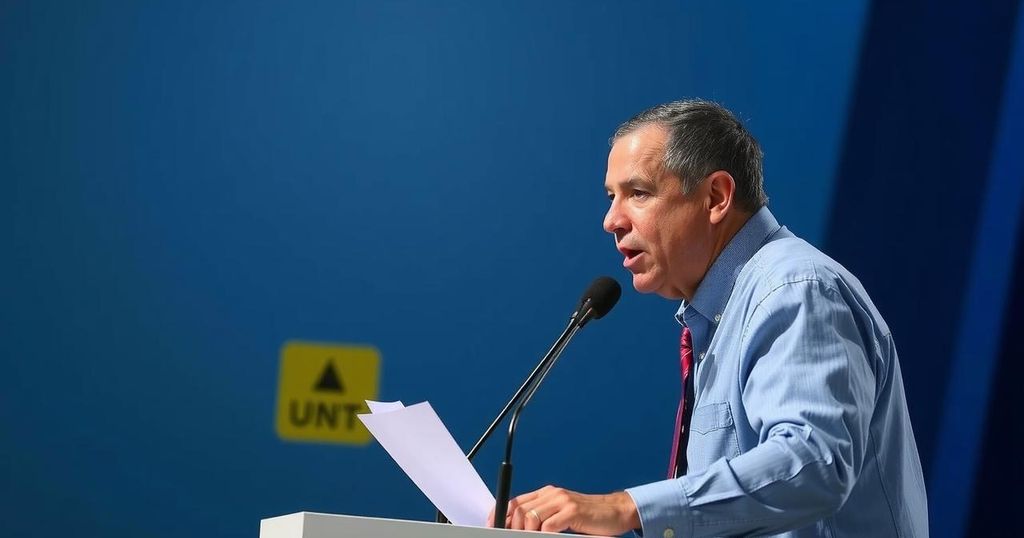Uruguay Faces Tight Presidential Run-Off as Voters Seek Stability

Uruguay prepares for a second-round presidential election between centre-left Yamandu Orsi and conservative Alvaro Delgado, with polls indicating a close race. Both candidates aim to attract undecided voters while facing a backdrop of economic concerns impacting electoral behavior. The election’s outcome could signal Uruguay’s stance against global trends of dissatisfaction with incumbents amid rising living costs.
In the serene setting of Uruguay, voters are preparing to engage in a critical second-round presidential election, highlighting the country’s inclination towards stability, highlighted by recent social policies such as the legalization of marijuana. The contest pits opposition centre-left candidate Yamandu Orsi against conservative challenger Alvaro Delgado, who retains support from a coalition that includes the third-placed Colorado Party, opening the door for a closely contested outcome. Polling suggests that fewer than 25,000 votes could separate the candidates, underscoring the competitiveness of this electoral event.
Uruguay’s political landscape is notably different from the sharper divides observed in neighboring countries like Argentina, Brazil, or Mexico, which may contribute to a less charged electoral atmosphere in this race. The polls will be open from 8 AM to 7:30 PM local time, with initial results expected within two hours of closing. Orsi, advocating for a modern leftist policy, previously garnered 43.9 percent in the October first round, whereas Delgado secured 26.8 percent, bolstered by support from the Colorado Party, collectively accounting for nearly 42 percent of the vote.
Both candidates aim to attract the approximately 8 percent of voters who supported minor parties in the initial round, as well as those who abstained. Despite their previous calls for support, neither candidate has introduced new platforms in the campaign’s final stretch, leading to speculation about their influence post a televised debate held on November 17. As this pivotal year for elections draws to a close, analysts are closely observing whether Uruguay’s election will deviate from the global trend of diminishing support for incumbent parties, driven by inflation and escalating living costs affecting economies worldwide.
Despite economic pressures, there is little evidence suggesting that Uruguayan voters are clamoring for significant political shifts, indicating a strong desire for continuity rather than upheaval. This sentiment could favor Delgado and his administration, particularly given that President Lacalle Pou, whose administration has seen favorable views, is ineligible for immediate reelection. The ongoing developments emphasize not only the importance of this election but also the broader implications for Uruguay’s political future and governance.
The political dynamics of Uruguay are marked by a rich tradition of moderation and stability, contrasting sharply with the polarization seen in other Latin American nations. This election follows a period characterized by significant social reforms and economic stability, allowing Uruguay to maintain a relatively prosperous situation amidst global challenges. The current presidential run-off occurs in the context of broader regional and international concerns regarding voter dissatisfaction with incumbent parties, often attributed to economic hardships such as rising inflation and living costs.
In summary, Uruguay’s forthcoming presidential election represents a culmination of both historical and contemporary political trends within the nation, encapsulating a race that reflects the broader status quo against formidable regional pressures. With differences in policy direction muted and a keen focus on maintaining existing governance, the election results are anticipated to reveal the Uruguayan electorate’s preference for stability over change, a theme echoed throughout the year in various global elections.
Original Source: www.begadistrictnews.com.au







